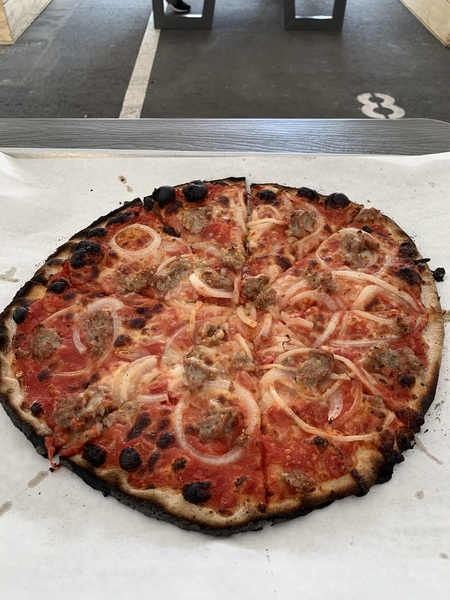So I had my annual pouchoscopy yesterday and got good news and bad news. The good news is, my J Pouch looks great, and the Remicade treatment I have had has worked well on inflammation inside the J Pouch. The bad news is the stricture I have at the J Pouch inlet, which we have been watching for almost 15 years, first with a CT Enterography in 2008, and then with an MRI Enterography in 2012, has gotten worse. My GI Doctor had told me a few years ago if he ever could not pass an adult endoscope through the inlet, the strictured inlet would have to be dilated. Last year, he got it through; this year, he could not. He said that I would need to get an endoscopic balloon dilation (EBD), and that I would need to get it done pretty soon, as I am in danger of intestinal blockage due to fibrosis (scarring) that has developed in the inlet. It's been almost 30 years since I went through the blockage rodeo, NG tubes, etc., and it's a rodeo I did not enjoy and have ample desire not to revisit.
If you are wondering why my J Pouch looks great but the inflammation in the inlet and the area above it are not responding as well to the Remicade, it's because, as my doctors have explained, the inflammation at the J Pouch inlet is coming from backsplash stool occurring because of a lack of a backsplash valve such as what existed with the colon that preceded it. This is a mechanical deficiency in the construction of the J Pouch that neither I, nor anyone else, can do anything about. All we can do is treat the stricture that has resulted, which seems to be a very common occurrence with persons having very long term Pouches (mine is almost 30 years old).
My GI doc then told me the chief risks with the EBD, in which a balloon is inflated to stretch out and open the stricture, are (1) perforation of the bowel, and (2) insufficient permanency of the result of the procedure, necessitating repeated dilations.
I then asked my GI, who wanted to do the EBD himself, exactly how many EBDs he has done. Before my scope yesterday he told me (on my question) that he had done 40,000 colonscopies and pouchoscopies- 1,000 per year- over the course of his long and distinguished career. However, when asked, he admitted he had done only 5 EBDs. He said he would do it "gently", and put me out with propofol rather than conscious sedation as he wanted to be totally focused for the procedure and not worrying about sedation. When I asked him if there was someone more experienced at Yale to do an EBD, he told me there was, and he would give me that referral with nary a bruise to his ego, because he wants what is best for me.
I have decided I will get the referral to the guy at Yale who does EBDs, but here are my questions for all of you:
1. What is the real chance of a perforation? How long they will keep me around to see if a perforation has occurred? I asked my GI doc how I would know I am perforated, and he said, "you will start to feel really sick." I hope there is something more assuring than that as a test for perforations, as I do not want to end up with sepsis before I know it's hit me.
2. Has anyone developed a blockage from a stricture at the J Pouch inlet? I am imagining this is not pretty. If the NG tube has to be inserted in such a situation, it would be sucking up, through your throat and nose, stool about to enter your J Pouch. Apart from being disgusting/revolting to even think about, is it even doable, or would they just cut me surgically and open the damn thing up?
3. How long is the usual EBD good for before the next one? He told me repeat EBDs are probable. Am I looking at an annual EBD? Quarterly? Monthly? Or could I be one and done for a few years, at least?
I have kind of been waiting for the other shoe to drop with this stricture for a long time now. It finally has. My main concern at this point is not getting a blockage if I do not do the procedure, and not getting perforated if I do the procedure.
Thoughts?




